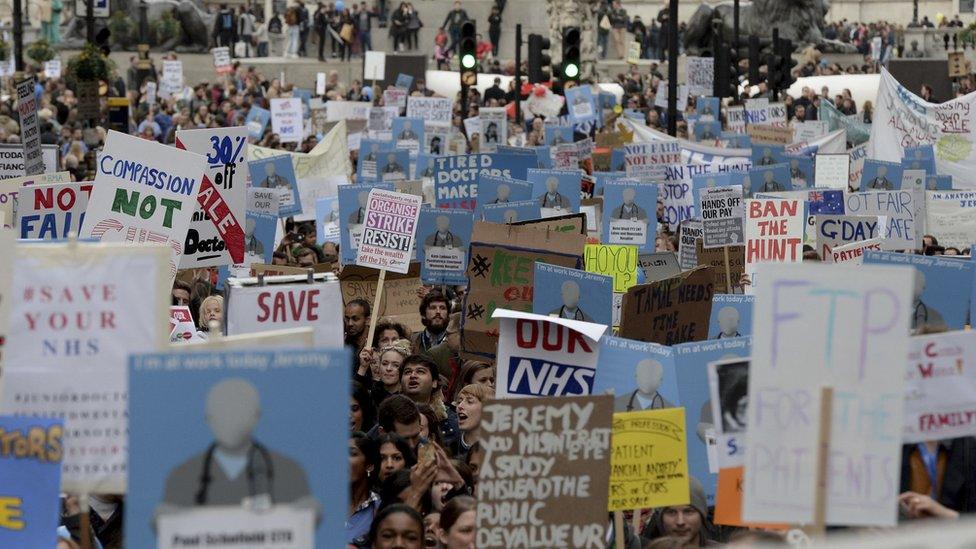Junior doctors – the temperature rises again
- Published

The festive season in the final weeks of 2015 saw peace if not goodwill descend on the world of junior doctors and their NHS employers as they sat around the negotiating table. It was not to last. The first days of 2016 have seen a return of the hostile rhetoric and strikes firmly put back on the agenda.
Similar to the December plans which were suspended, there will be three sets of dates for industrial action by junior doctors in England. Two of them will see routine and non-urgent care affected by doctors' walkouts. The third, in February, will involve doctors refusing to provide any care, including for emergencies.
So what chance is there, if any, of the first strike on January 12th being avoided?
Both sides have said they are willing to go to the conciliation service ACAS but getting the process set up and running in time for enough ground to be covered seems a big ask. Jeremy Hunt has introduced a new senior player into his negotiating team - Sir David Dalton, chief executive of Salford Royal Foundation Trust - in Mr Hunt's words to "facilitate further constructive discussion". The Secretary of State no doubt hopes a fresh perspective from an experienced NHS chief might help break the logjam.
But the words from both sides after the announcement of strikes by the British Medical Association did not suggest there was a lot of room for manoeuvre. Interpretations of what happened on Monday, the first day of substantive talks since before Christmas, differed significantly. Frustration and diminishing trust were all too apparent.
The Government side, comprising the Department of Health and NHS Employers, said they were bemused at the turn of events. They say they went into Monday's meeting with a significant new proposal aimed at addressing the BMA's concern about doctors being made to work excessive hours. This would see trusts fined for breaches of agreed ceilings on hours in a system overseen by "Guardians" responsible for safeguarding doctors' working conditions. The Government side claim that the BMA read through the proposal but refused to discuss it before announcing their strike plans.
Mr Hunt argues that 15 out of 16 key issues in the dispute have been addressed by the Government and that its only pay for unsocial hours which is unresolved. He appears to have reached this figure by taking the areas identified at earlier ACAS talks and added some issues of concern raised by the BMA.
The BMA has rejected the idea there is only one out of 16 issues which is still outstanding. Ministers may feel they have addressed important areas of dispute but, doctors argue, that's not the same as resolving them. The union is adamant that the stumbling block is not just pay and that there are major differences over safeguards on hours. BMA leaders say the new plans for fining trusts put forward by the employers did not add up and were far from robust, so were not worth discussing.
The clock is ticking and the first day of action is not far off. The BMA, while being ready for further talks, seems determined to press on with action if required with all the implications for patients. Jeremy Hunt and David Cameron now have to decide how much they want to avoid strikes and whether they have gone far as they reasonably can to placate the doctors.
- Published5 January 2016